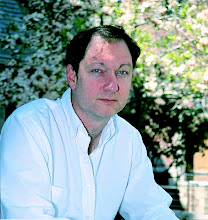In England the Police Don't Always Come Even when You Call Them
Thames Valley Police received a dressing-down this week over their pathetic response to the infamous 'barbecue killings'. Stuart Horgan burst into a family barbecue, shot his estranged wife, her sister and mother, then left. Neighbours repeatedly phoned the emergency services, explaining that the gunman had gone. But the police refused to attend for more than an hour in case he was still around; armed officers waited four miles away. Ambulance crews would not enter without police. Horgan's wife, Vicky, and her sister, Emma Walton, both died.
This week, an inquest heard that Thames Valley Police took almost seven hours to enter a house after another emergency phone call from a terrified woman hiding in a cupboard. By the time they arrived Julia Pemberton was dead, along with her teenage son William, killed by her estranged husband Alan who then shot himself.
And lest anybody think this problem is peculiar to Thames Valley, another inquest this week revealed that Sussex Police refused to go in after Linda Watson dialled 999 to say that her husband Richard had been shot outside their home. Even after a family friend took it upon himself to drive up, check Mr Watson's dead body and report to police, they waited another hour before deciding it was safe to approach.
Mrs Watson's solicitor told the inquest that the police were 'cowardly'. There seems no reason to suppose that officers are personally any more cowardly today. But they are now working within what looks like a culture of moral cowardice.
The damning report into the barbecue killings reveals that in dilly-dallying rather than acting decisively, the police were only following official guidelines. A police force that is ordered not to be forceful, for fear of unknown consequences, seems an appropriate guardian of our safety-first society, which is wary of tackling anything risky. Senior police officers faffing about in the face of murder are not the only leaders reluctant to take responsibility for life-and-death decisions today.
No doubt police also fear that they might be sued by victims or prosecuted by the authorities if they take a risk. After all, wasn't the Metropolitan Police Commissioner himself charged with breaching health and safety laws after the death of a PC who fell through a roof while chasing suspects? It's a wonder that the police don't insist that health and safety inspectors answer 999 calls and carry out a risk assessment of all crime scenes before they agree to tiptoe in. . . .
Thanks very much to John Zumrick for sending me the link. Thanks to L.J. O'Neale for reminding me of the Washington Post article that I added in the first paragraph.







3 Comments:
Could it be UK cops are getting "respond to an emergency call" confused with "duck and cover"?
Or perhaps Benny Hill was appointed Chief of Police.
OK, have out with it. What is the deal with your eyebrows????
cowards! this is truly pathetic.
a cautionary tale of what america will one-day become (if things keep going the way they are)...
thebronze
Post a Comment
Links to this post:
Create a Link
<< Home